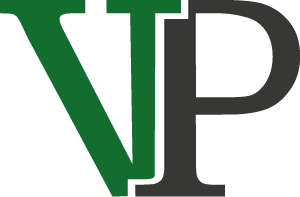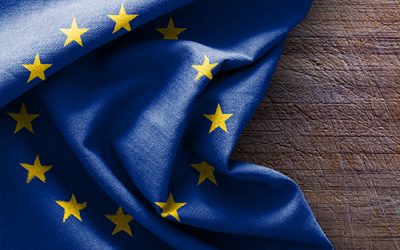Art. 1 of the D.L. n. 157/2021 (the so-called “Anti-fraud Decree”) has modified the discipline dictated by arts. 119 and 121 of the D.L. n. 34/2020 (the so-called “Relaunch Decree”) on the subject of building bonuses.
In particular, with art. 1, paragraph 1, letter a) of the D.L. 157/2021 (so-called “Anti-fraud Decree”) the need to affix the compliance visa is extended even in the case of use of the so-called “Superbonus 110%” by the beneficiary as a deduction in their tax return.
Previously, in fact, the compliance visa was required only in the case of credit transfer or invoice discount. However, it is further provided that the obligation to enter the compliance visa does not exist if the declaration is presented:
• directly by the taxpayer, through the use of the pre-filled declaration prepared by the Revenue Agency, or
• through the withholding agent who provides tax assistance.
Since for such declarations the Revenue Agency can already carry out preventive checks on the submitted declaration.
The same letter a) of art. 1, paragraph 1 of the Decree then provides that, for the purposes of certification for the interventions in question, it is necessary to refer not only to the “price lists”, but also to the “maximum values” that will be established, for certain categories of goods, with Decree of the Minister of Ecological Transition. Decree that must be issued within 30 days from the date of conversion of the anti-fraud Decree into law.
The following letter b) intervenes, again, extending the obligation of the compliance visa even in the case of an option for the transfer of credit / discount on the invoice for construction works other than those that entitle the 110% Superbonus.
In particular, these are the following interventions:
• recovery of the building stock;
• energy efficiency;
• adoption of anti-seismic measures;
• recovery or restoration of the façade of existing buildings, including those for external cleaning or painting only;
• installation of photovoltaic systems;
• installation of charging stations for electric vehicles.
Finally, it is established that, even for this type of intervention, the qualified technicians must certify the appropriateness of the expenses incurred.
Recently the Revenue Agency has provided some clarifications, in the form of FAQs on its website and with the publication of circular no. 16 / E of 29 November.
As stated above, the “Anti-fraud” decree has extended the compliance visa requirement also to the case in which the “Superbonus 110%” is used by the beneficiary in the form of a deduction in their tax return.
However, this obligation is excluded in the event that the return is presented directly by the taxpayer, through the use of the pre-filled return prepared by the Revenue Agency (model 730 or Income model), or through the withholding agent who pays tax assistance (form 730).
This compliance certificate, for the issue of which the expenses are deemed deductible, concerns only the data relating to the documentation that certifies the existence of the conditions that give the right to the deduction, it being understood that the taxpayer is required to request the compliance certificate on the entire declaration in all cases provided for by law.
With the Faq published on its website, the Revenue Agency also clarifies that:
• the obligation also concerns the works carried out and paid for in 2021 to be indicated in the form 730 or INCOME 2022 (without any distinction between those to be concluded and already concluded and / or already paid);
• the compliance certificate in question only concerns the data concerning the 110% deduction and not the declaration as a whole, it being understood that the affixing of the “ordinary” conformity certificate to the declaration (linked, for example, to the use of credits), also includes the certification of data for the purpose of deduction of 110%;
• the documentation relating to the issue of the compliance visa in question must be kept by the taxpayer together with all the documentation relating to the interventions for which it benefits from the 110% deduction.
Superbonus 110
As regards the certification of the adequacy of the costs related to interventions by superbonus 110%, the “Anti-fraud” decree provided for the adoption of a decree by the Minister of Ecological Transition.
• for the identification of maximum values, for certain categories of assets,
• which must be referred to in order to certify the adequacy of the expenses incurred.
In this regard, it is clarified that, pending the adoption of the aforementioned decree, for the certification it is necessary to refer to:
• for interventions aimed at energy redevelopment falling under the Superbonus, the decree of the Minister of Economic Development of 6 August 2020, containing “Technical requirements for access to tax deductions for the energy redevelopment of buildings – cd. Ecobonus “
• for interventions other than those aimed at energy redevelopment, including those aimed at reducing seismic risk, falling within the Superbonus, to the residual criterion identified by article 119, paragraph 13-bis, of the “Relaunch” decree, ie the prices shown in the price lists prepared by the Regions and autonomous Provinces, to the official price lists or to the price lists of the local chambers of commerce, industry, crafts and agriculture or, failing that, the current market prices based on the place where the interventions are carried out.
The Inland Revenue then points out that the rules relating to credit transfer communications concerning the remaining unused installments of the deductions relating to the expenses incurred in 2020 for the interventions admitted to the Superbonus remain unchanged.
Ordinary bonuses
As regards the new certification provided for “ordinary bonuses” (other than 110%), the Revenue specify that it must certify the appropriateness of the expenditure incurred in consideration of the type of work and must be made “according to the provisions of article 119 , paragraph 13-bis “of Legislative Decree no. 34/2020, for which reference can be made:
• for interventions aimed at energy requalification, as per Ministerial Decree of 6 August 2020, in the case of interventions with work commencement date from 6 October 2020, and the residual criteria identified by the aforementioned paragraph 13-bis of Article 119 of Legislative Decree no. 34/2020 for those with an earlier work start date
• for interventions other than those aimed at energy requalification, including those aimed at reducing seismic risk, according to the criteria provided, residually, by the aforementioned article 119, paragraph 13-bis, of Legislative Decree no. 34/2020.
Furthermore, the Revenue Agency clarifies that:
• the sworn certification required refers exclusively to the “adequacy of expenses”, without prejudice to the obligation of sworn certification regarding the technical compliance of the interventions performed under the provisions already in force with reference to specific interventions;
It is also clarified that the certification of the adequacy of the expenditure can be issued, for the same type of interventions, by the technicians authorized to issue the sworn certificates required for the interventions admitted to the Superbonus, even in the absence of a work progress or a declaration at the end of the works, without prejudice to the need for the interventions to be at least started. This is because, also in consideration of the rationale of the “Anti-fraud” decree to prevent fraudulent behavior in the use of these facilities, it should be noted that the incurring of an expense finds an economic justification only in relation to an execution, even if partial, of works.
Given that the obligation to issue the certification, as well as the compliance visa, was already provided for by Legislative Decree 34/2020, the rules relating to credit transfer communications concerning the residual installments not used for the deductions relating to the expenses incurred in 2020 for the interventions admitted to the Superbonus remain unchanged.
Therefore the taxpayer who has directly used the 1st installment of expenses relating to interventions admitted to the Superbonus as a deduction in his tax return for the year 2020 and intends to transfer the residual installments not used, pending the entry into force of the Ministerial Decree of Mite, for the purpose of communicating the assignment, must be in possession of the certification already acquired for the direct use of the deduction for the 1st installment, as well as the approval of the data relating to the documentation certifying the existence of the conditions that give the right to the Superbonus.
The Revenue Agency with circular 16/2021 describes the controls provided for by the “Anti-fraud” decree that are carried out by the Revenue Agency, in the event that specific risk profiles identified by the law emerge.
In particular:
• it is reiterated that, in the event of preventive checks, if these risk profiles are not confirmed, the term of use of the credit set out in the communication is extended for a period equal to the period of suspension of the communication itself.
• it is specified that the subjects obliged to report anti-money laundering, which intervene in the transfers communicated to the Agency, do not proceed with the acquisition of credit in cases where there is an obligation to report suspicious transactions or abstention.
If these subjects proceed with the purchase of the credit despite the conditions for reporting suspicious transactions, this conduct is also assessed for the purpose of participating in the violations relating to the use of the credits in question.

